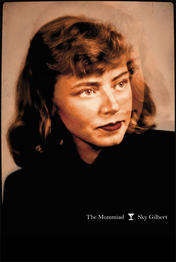Entertainment & Performing Arts

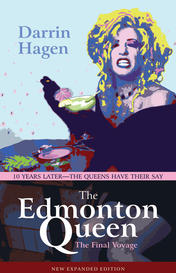
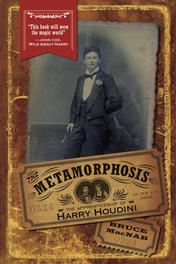
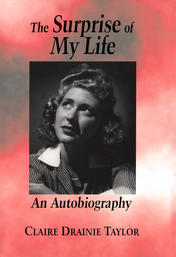
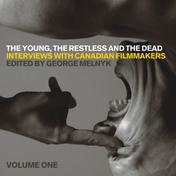
Excerpt from The Young, the Restless, and the Dead: Interviews with Canadian Filmmakers edited by George Melnyk
From the introduction to Chapter 7 “I like to work one-on-one” ANNE WHEELER interviewed by Peggy Thompson
She's one of Canada's defining English-language cinematic voices. During her career she's directed eight feature films, nine movies for television, and numerous documentaries, miniseries, and television episodes. Her movies for television have been nominated for a total of thirty-one Geminis and her films for a total of thirty-eight Genie Awards. As François Truffaut wrote in Hitchcock, directing films requires “multiple and often contradictory talents . .. only a mind in which the analytic and synthetic are simultaneously at work can make its way out of the maze of snares inherent in the fragmentation of the shooting, the cutting and the montage of a film. “
Wheeler trained as a mathematician, musician, and music teacher before directing her first film. When she talks about directing she uses musical analogies and notations. And when she shoots, it's with mathematical precision. At our first meeting in 1998 to discuss working together on Better Than Chocolate, producer Sharon McGowan and I arrived at Anne's office to the sound of delicate piano playing. It was Anne. When we asked her what the piece was, she said it was her morning improvisation; each day begins with one. I think that this ability to start fresh, to reinvent, is a hallmark of her work as a film artist.
Wheeler's body of work harks back to classic auteurs, directors like George Stevens, Akira Kurosawa, and Billy Wilder whose themes and styles embraced all genres: westerns, comedies, film noir, drama. Wheeler is the same: whether its the social-issue drama of Loyalties, the romantic naturalism of Bye Bye Blues, the neo-noir of television's Da Vinci's Inquest, or the romantic comedy of Better Than Chocolate, Wheeler's recurring themes of liberation and self-knowledge run through them all.
Like George Stevens, Wheeler is a director who understands the importance of landscape in relation to the psyche. Stevens's westerns Shane and Giant share with Wheeler's Alberta films the metaphor of western place. Land and sky become a tabula rasa on which deeply internalized characters (male and female) can see themselves in a new light. As did Akira Kurosawa, another director who understood westerns, Wheeler isn't afraid of epic pacing, and, like Billy Wilder, whose comedies stressed character exaggeration, Wheeler's forays into comedy (Better Than Chocolate, Suddenly Naked) prove that she too can handle an everywoman protagonist thrust into a cockeyed universe.
In the 1970s and '80s Wheeler collaborated with the National Film Board making documentaries and short dramas such as Great Grand Mother, Augusta, Happily Unmarried, Teach Me to Dance, One's a Heifer, A Change of Heart, and A War Story. The latter, narrated by Donald Sutherland, explores her fathers experiences as a doctor in a Japanese prisoner-of-war camp during World War Two. These films laid the groundwork for the films to follow.
Her first feature film, Loyalties (1986), starred Tantoo Cardinal and Susan Wooldridge and was written by Sharon Riis. Loyalties is a powerful film about a friendship between a Metis and a British woman, and deals with child abuse and how a case of abuse (the British woman's husband assaults the Metis womans daughter) propels the two women to action. This groundbreaking film moved Wheeler into the international narrative film world and won awards at film festivals in Houston, San Francisco, Toronto, Portugal, South Africa, Montreal, and the Grand Prix at the Créteil International Women's Film Festival in Paris.
Bye Bye Blues (1988) was inspired by her mother's war years as a musician in a small dance band, and established Wheeler as an auteur director. We explore the making of Bye Bye Blues in this interview. In 1990, she directed the adaptation of the classic novel The Diviners, by Margaret Laurence, for CBC Television. The novel was adapted by renowned screenwriter Linda Svendsen. “Writing is a form of divining”, Laurence has famously said, and with The Diviners Wheeler develops what is now becoming her major theme--women's struggles to discover and divine self-knowledge.
The War Between Us (1995), another film for CBC Television, explores the Japanese internment in Canada during World War Two and is again a film about the bonds between women. This film was written by screenwriter Sharon Gibbon, the granddaughter of the lead character. As with so many of Wheeler's films, real life is once again “divined” into fiction. The film garnered international awards, including the Special Jury Prize from the Houston Film Festival, the Red Cross Award for Humanity, the Critic's Choice Award at Monte Carlo, and a Cable Ace Award for Best Foreign Programming in the United States. In 1996 Wheeler wrote and produced Mother Trucker: The Diana Kilmury Story, directed by Sturla Gunnarsson. The film is a biopic about the woman who fought to change corruption within the Teamsters. That film won the Cable Ace Award in the United States for Best International Programming. In 1998 Wheeler directed the first three episodes of Da Vinci's Inquest, setting the style for the gritty hit series. Better Than Chocolate (1999), our lesbian-themed romantic comedy, premiered at the Berlin Film Festival and was a critical and commercial success. The film received wide distribution in the United States, playing in over 300 theatres. We discuss our collaboration on this film in the interview. Marine Life (2001), adapted from the linked short stories by Linda Svendsen, also explores Wheeler's primary themes of families headed by women and the discovery of self. In 2000 Wheeler directed Suddenly Naked, a romantic comedy that also premiered at Berlin and, through humour, questions what happens when artists create for fame and fortune rather than express themselves truthfully.
For the purposes of this interview I focus on two of Wheeler's feature films: Bye Bye Blues, a story rooted in her family and place of birth, and Better Than Chocolate, a film rooted in my family and place of birth. But to begin, I ask her about getting started in the film world.


